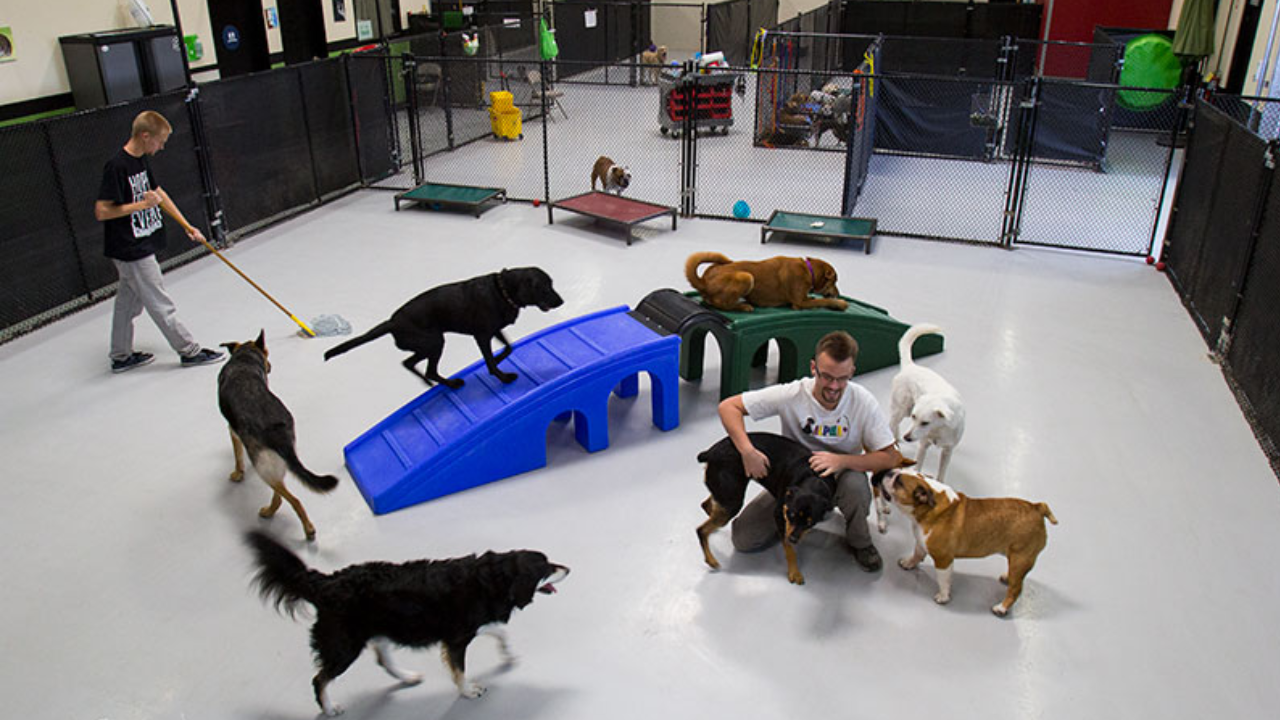If you’re interested in pit bulls, then you’re likely aware that they are commonly found on banned breed lists. Owning a pit bull can limit your selection when it comes to finding housing, traveling via plane, or purchasing insurance plans.
With that in mind, you may be wondering if pit bulls are also banned from becoming service dogs. In this article, we will talk about pit bulls as service dogs, what rights they have, and how they differ from emotional support animals.
Pitbulls Can Be Service Dogs
According to the Americans with Disabilities Act (ADA), any breed of dog can become a service dog; this includes pit bull breeds. A service dog is defined as any dog that is “trained to do work or perform tasks for an individual with a disability.”
Furthermore, service dogs cannot be barred from any business or housing without a valid reason. Therefore, if you live in a housing complex that bans pit bulls, this ban would not apply to you if your pit bull is a service dog. Service dogs are considered a medical necessity, and it is unlawful to deny them without good reason.
Businesses can only lawfully remove service animals from the premises when the animal has acted out in some way. This could include soiling, unprovoked aggressive behavior such as growling or lunging at others, uncontrollable barking, jumping on others, or running away from the handler.
Essentially, if a service dog is poorly behaved in such a way that is a danger to others, businesses are within their rights to have it removed. However, generalized fear or stereotypes against a certain breed are not valid reasons for a business or landlord to deny a service dog user access to their services.
Do Pitbulls Make Good Service Dogs?
You’ve probably noticed that breeds like Labrador retrievers, golden retrievers, and German shepherds are popular working breeds. You won’t often see a pit bull as a service dog. However, that doesn’t mean a pit bull can’t excel at this type of work.
In truth, whether or not a dog can make it as a service dog is entirely up to their temperament and their drive to work. Service dogs are often people pleasers who love praise. They care about their humans more than the things around them, which helps them focus on their work instead of getting distracted.
Some pit bulls do have temperaments like this. Many pit bull owners comment about how loving and attentive their dogs are. Pit bulls are often large dogs and they are quite strong, which makes them good candidates for mobility support or even guide work.
There is some evidence that pit bulls tend to be more aggressive than other breeds. Of course, there are many factors that can contribute to aggression, and it’s important to understand that every dog is an individual.
Should you be interested in having a pit bull as a service dog, you’ll want to look for a dog that does not display any signs of aggression toward humans or other animals. Getting a pit bull as a puppy can help as you will have total control over the dog’s upbringing.
You can socialize them with other dogs, which can help prevent aggressive behaviors. You will also be able to work on service dog training from a young age. According to US Service Animals, as long as a pit bull has the right temperament and is willing to work, there is no reason a pit bull can’t become a service dog.
Service Dogs vs Emotional Support Animals
Many people get service dogs and emotional support animals (ESA) confused. The main difference between the two is that service dogs are trained to perform specific tasks that help people with disabilities. For example, a psychiatric service dog can use deep pressure therapy to help someone who is suffering from a panic attack.
Emotional support animals do not have to be trained. Instead, it is their presence alone that provides comfort to their owners. Unlike service animals, ESAs do not have public access rights and are not allowed into businesses or on airplanes.
Emotional support animals are, however, protected by the Fair Housing Act (FHA). Under the FHA, landlords must allow ESAs to live with their owners even if the property doesn’t typically allow pets. Furthermore, landlords cannot deny ESAs based on breed or charge any pet fees or pet rent. The FHA also provides these same protections to service dog users.



